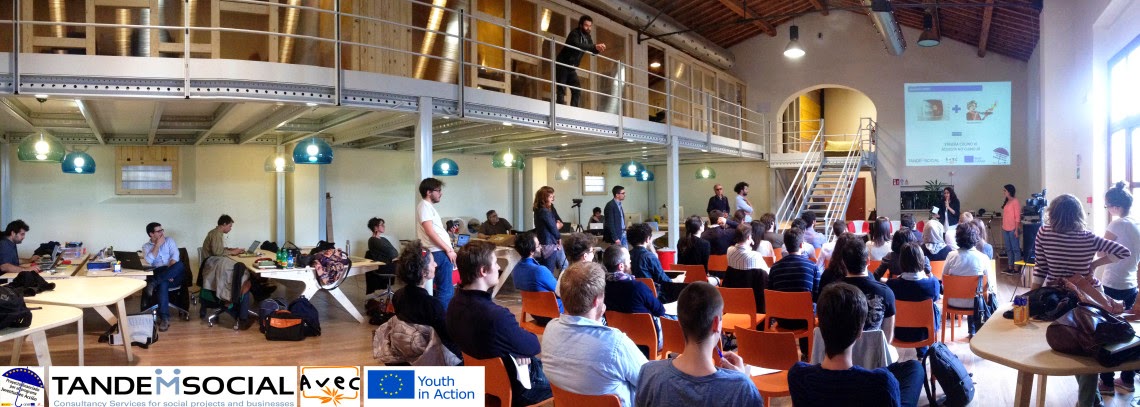Meeting and working together in Strasbourg on
16 and 17 January 2014, over 2000 social entrepreneurs and supporters of social
enterprise, representing the rich diversity of the social economy, have
affirmed the view that social enterprises must play a bigger role in the future
of Europe and have identified new ideas and actions to unlock their potential
for smart, sustainable and inclusive growth.
THE
CONTRIBUTION OF SOCIAL ENTERPRISE TO EUROPE
Europe’s economic and social model needs to
reinvent itself. We need growth that is fairer, greener and anchored in local
communities. A model that values social cohesion as a genuine source of
collective wealth.
Social enterprises are recognised as a vehicle
for social and economic cohesion across Europe as they help build a pluralistic
and resilient social market economy. Building on the strengths of a long social
economy tradition, social entrepreneurs are also drivers of change, creating
innovative solutions to the big challenges that face us today. Acting in the general interest, they create
jobs, provide innovative products and services, and promote a more sustainable economy.
They are based on values of solidarity and empowerment; they create opportunities
and hope for the future.
Social enterprises come in many shapes and
sizes and take different legal forms across Europe. As stated in the Commission’s
Social Business Initiative (SBI),
they have the following common characteristics:
·
Earning
income by trading
·
Having
a social or societal objective of the common good as the reason for their economic
activity, often in the form of a high level of social innovation,
·
Profits
being mainly reinvested with a view to achieving this social objective,
·
A
method of organisation or ownership system reflecting their mission, using
democratic governance or participatory principles or focusing on social justice.
Social enterprises offer a model for 21st
century business that balances financial, social, cultural and environmental
needs. Social entrepreneurs are agents of change, as individuals and groups who
are passionate about improving the lives of people and communities.
Social enterprises work. They are effective.
There is no part of Europe that cannot benefit from social entrepreneurship. At
this time of economic crisis and with the challenges of an ageing population,
youth unemployment, climate change and increasing inequalities, Europe needs
more social enterprises.
A
CALL TO ACTION TO REALISE THE POTENTIAL OF SOCIAL ENTERPRISE
Governments and public bodies have started to
recognise the power of social entrepreneurship. Steps are being taken in many
Member States and regions to encourage the growth of social enterprises. At EU level, the SBI has made a positive
start in promoting eco-systems for social enterprises but we must not lose momentum.
Therefore,
1. The EU must follow through on all the actions in the SBI. It should
develop a second phase of the SBI that broadens its scope, deepens its
partnership with Member States, regional and local authorities, civil society
organisations and key players in the ecosystem.
2. The European Economic and Social Committee, the next European Commission
(with a dedicated inter-service structure) and the next European Parliament must
take full ownership and deliver on the actions suggested in Strasbourg.
3. There must be a stronger engagement at EU, national, regional and local
levels with the social enterprise community in the co-creation of new policies
to support social enterprise, suited to the local context.
4. The Commission must ensure that its commitment to create an eco-system
for social enterprise is mainstreamed in its policies.
5. In partnership with the social enterprise sector, Member States, regional
and local authorities must fully support the growth of social enterprises and help
them build capacity. For example through legal frameworks, access to finance,
business start-up and development support, training and education and public
procurement.
6. The European institutions and Member States should reinforce the role of
social enterprises in structural reforms to exit the crisis, notably where the social
economy is less developed.
7. The Commission, the Member states and regions must boost cooperation
between social enterprises across borders and boundaries, to share knowledge
and practices. Similarly, all public authorities should cooperate better
between themselves and enhance their capacity to support social enterprise
growth.
8. Public and private players must develop a full range of suitable
financial instruments and intermediaries that support social enterprises
throughout their life-cycle.
9. Social enterprise still needs further research and national statistical collection
for a better understanding, recognition and visibility of the sector, both
among policymakers and the general public.
10. In this new Europe, all players need to look at growth and value
creation from a wider perspective, by including social indicators and
demonstrating positive social impact when reporting social and economic
progress.




.JPG)







